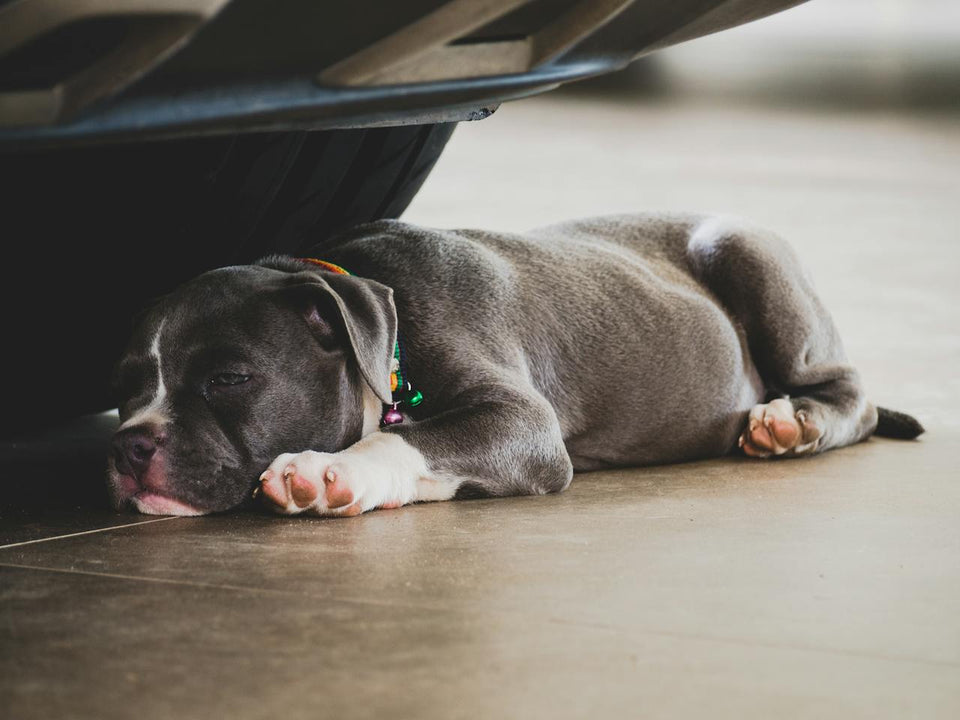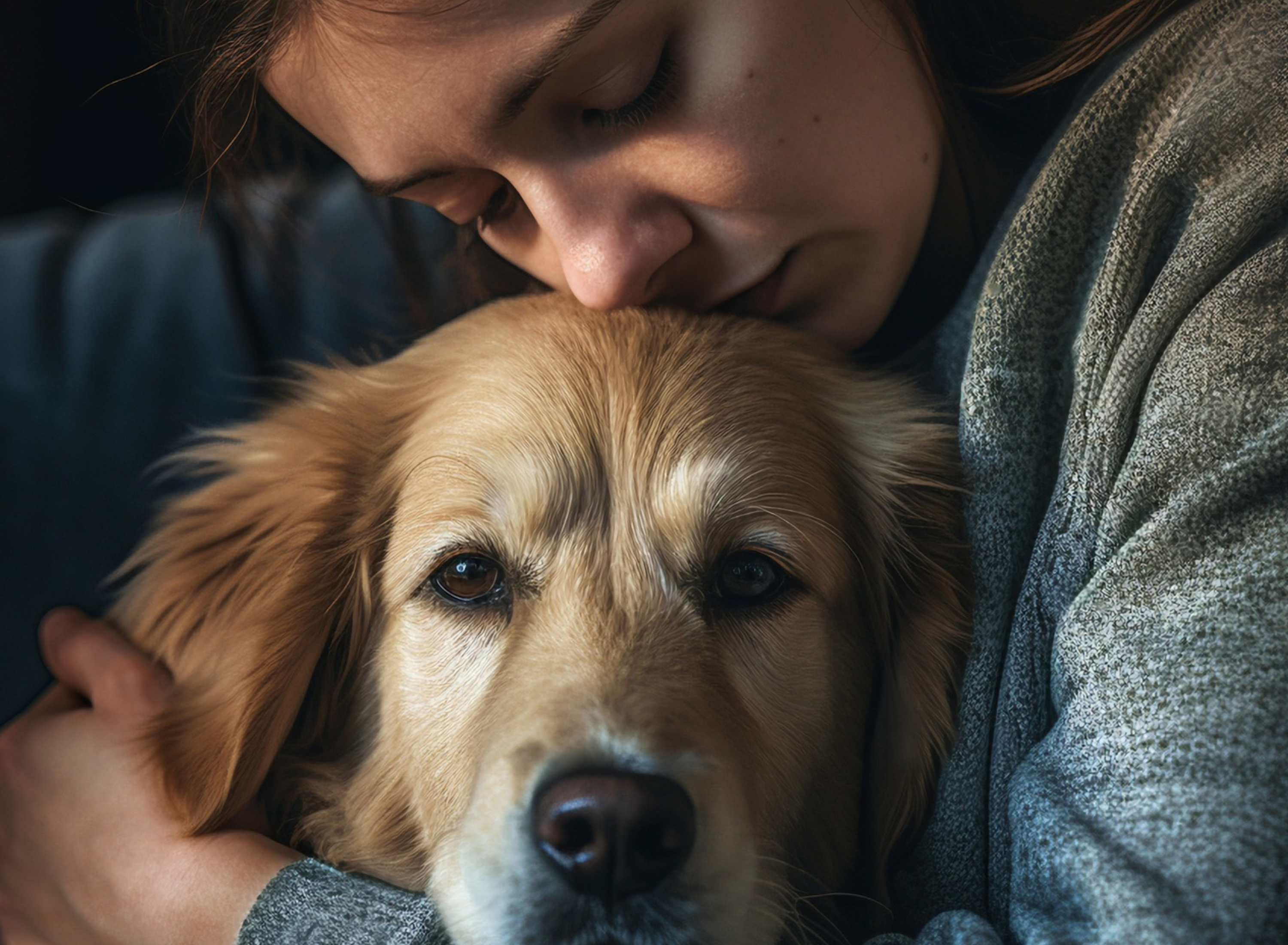
Why Doesn’t My Dog Want to Sleep with Me?

You're tucked in bed, but your furry friend isn't by your side. You might wonder, "Why doesn't my dog want to sleep with me?" It's not just a simple preference. Various factors, from health to comfort, influence your dog's sleeping habits. Understanding these can deepen your bond and ensure peaceful nights for both of you. Keep reading to unravel the mystery behind your dog's nighttime choices.
Understanding Dog's Body Language and Preferences
Dogs, complex and intuitive creatures, primarily communicate through body language rather than physical contact. This preference for non-verbal cues over touch is rooted in their natural instincts and behaviors. Each dog has unique preferences, and their personal space is crucial for their comfort and trust. It's essential to observe and understand these preferences to maintain a harmonious relationship with your furry friend.
Recognizing discomfort in dogs is key to understanding their sleeping choices. Signs of unease might include avoiding eye contact, retreating to a corner, or showing signs of stress like panting or pacing. On the other hand, a relaxed dog will have a soft gaze, a wagging tail, and may seek your company. Trust and familiarity play a significant role in a dog's decision to sleep close to their human companions.
Environmental Factors Influencing Dog's Sleeping Habits
The environment where your dog sleeps greatly impacts their comfort. Factors such as the room's noise level, the presence of other pets or people, and even the temperature can significantly affect their sleeping habits. Dogs are sensitive to high-pitched sounds that humans may not detect, which can disrupt their sleep.
Temperature and bedding are also critical. Dogs prefer cooler environments, so a room that's too warm might be uncomfortable for them. Additionally, the type of mattress you have can make a difference. Many dogs prefer firm surfaces over soft ones, which could be why they opt to sleep elsewhere.
Creating a familiar and safe space, perhaps with a comfortable orthopedic dog bed from Paw.com, can encourage your dog to sleep more peacefully in your presence.
Health and Age-Related Reasons
Aging in dogs brings about changes in their sleeping habits due to increased joint pain or sensitivity. As dogs age, they require more sleep, and their sleeping patterns may change, sometimes aligning less with their human's schedule. Younger and older dogs have different sleep requirements, and it's crucial to accommodate these changes for their comfort.
Health issues can significantly impact a dog's sleep patterns. Conditions like dementia, insomnia, or sleep apnea are not uncommon and can lead to discomfort during the night. It's important to be observant of any signs of discomfort or abnormal behavior in your dog and consult a veterinarian if you notice any worrying symptoms.
Dog’s Need for Independence and Space
Dogs, just like people, cherish their own space and independence. This intrinsic desire often becomes more pronounced as they age. Their behavior changes, and they might seek solitude, preferring a quiet corner over your bustling bed. It's essential to understand and respect these changes. As your dog grows older, they might not find your bed as comfortable as before, especially if it's a soft mattress, and they prefer something firmer. With aging, dogs can become more sensitive, needing more restful sleep without disturbances, including the ones you might cause while turning in your sleep.
This need for space does not imply a decrease in affection towards you. Instead, it's a natural progression of their individuality and a sign of their evolving needs. Respecting your dog’s choice to sleep alone is crucial, as it balances their need for companionship with their independence. Understanding this will help maintain a healthy and happy relationship with your furry friend.
You may also like: Understanding Different Sleeping Position
Behavioral and Psychological Factors
Behavioral and psychological factors play a significant role in your dog's sleep habits. Stress, for example, can greatly affect their desire to sleep with you. Changes in the home, such as the arrival of a new pet or a move to a new environment, can cause emotional stress in dogs, leading them to seek comfort in solitary sleeping spots.
Past experiences and trauma can also influence their behavior. Dogs with negative experiences related to sleeping areas might avoid them. Similarly, changes in routine or environment can lead to sleep disturbances. A dog's mood and temperament are other vital factors. If they're not feeling up to it, they might prefer to sleep alone.
It's important to be attentive to signs of anxiety in your dog, such as pacing or whining, as these could indicate discomfort with their sleeping arrangement. Responding to these signs with understanding and patience is key to ensuring your dog's well-being and comfort.
Training and Encouraging Dogs to Sleep with You

If you desire your dog to sleep with you, there are gentle and effective ways to encourage this behavior. Introducing a dog bed into your bedroom can be a first step to creating a sense of closeness. This helps your dog become accustomed to your room without feeling overwhelmed or stressed.
Training plays a crucial role in encouraging your dog to sleep with you. Teaching commands like 'stay', 'down', and 'bedtime' in your bedroom can create a positive association with your bed. Remember, patience and consistency are key during this training process. Dogs take time to learn and adapt to new commands.
Rewards and positive reinforcement are effective tools in this training. Offering treats when your dog listens to your command and stays in bed can reinforce the desired behavior. However, it's essential not to overdo it, as too many treats can lead to health issues.
Most importantly, even after training, it's crucial to respect your dog’s choice. If they prefer to sleep elsewhere, it's vital to honor their decision. Each dog has a unique personality and behavior, and what works for one might not work for another. Creating a comfortable and stress-free environment for your dog should be the primary goal, whether they choose to sleep by your side or not.
You may also like: Why Do Dogs Prefer to Sleep Under the Bed
Embracing Your Dog’s Sleeping Preferences
In the journey of companionship with our dogs, embracing their sleeping preferences is a testament to the depth of our bond. Each dog is a unique individual, with distinct habits and needs when it comes to rest. Understanding and respecting these preferences is not just about ensuring their comfort; it's about acknowledging their personality and well-being. By fostering a healthy and comfortable sleeping environment, we align our desires with what’s best for them. Whether your furry friend chooses to curl up at your feet, or in their own space, the essence of your bond remains unchanged. It's in these moments of respect and understanding that we truly honor and strengthen our connection with our beloved pets.
Share this article
written by


